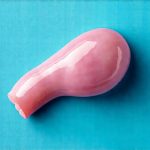Constipation and urinary tract infections (UTIs) are both incredibly common conditions, often causing discomfort and disruption in daily life. While seemingly unrelated, there’s growing recognition that these two can significantly influence one another, creating a frustrating cycle for those affected. Many individuals experiencing UTI symptoms find they worsen during periods of constipation, prompting the question: is there a direct link? Understanding this connection isn’t about self-diagnosing or treating; it’s about recognizing how bodily systems interact and being informed when discussing health concerns with a medical professional. This article delves into the complex relationship between constipation and UTI symptoms, exploring the potential mechanisms at play and offering insights to help you better understand your body.
The discomfort of a UTI – burning sensations during urination, frequent urges, and even abdominal pain – can be dramatically amplified when coupled with the bloating, discomfort, and pressure caused by constipation. It’s not simply that two unpleasant things are happening simultaneously; there’s evidence suggesting that constipation can actively exacerbate the symptoms associated with UTIs. This is largely due to the proximity of the digestive system and urinary tract, as well as shared nerve pathways and potential impacts on immune function. The goal here is to provide a comprehensive overview, empowering you with knowledge to navigate these conditions effectively and seek appropriate care when necessary—remembering that this information should not replace professional medical advice.
The Gut-Bladder Connection: How Constipation Can Impact UTIs
The relationship between constipation and UTI symptoms isn’t always immediately obvious, but it stems from the close anatomical proximity of the digestive system (specifically the colon) and the urinary tract. These systems are neighbors within the pelvic region, and a full bowel can physically press against the bladder, reducing its capacity and increasing urgency – even if the bladder isn’t actually full of urine. This physical pressure can mimic UTI symptoms, making it difficult to distinguish between the two, or significantly amplifying existing UTI discomfort. Imagine a balloon being squeezed; that’s essentially what happens to the bladder when bowel contents are impacted nearby.
Furthermore, chronic constipation can lead to weakened pelvic floor muscles. These muscles play a vital role in supporting both the bladder and rectum. When they’re stretched and weakened from prolonged strain due to constipation, it can contribute to incomplete bladder emptying – leaving residual urine behind. This stagnant urine provides an ideal breeding ground for bacteria, increasing the risk of UTIs or worsening existing infections. It’s important to remember that a healthy pelvic floor is crucial for proper urinary function, and constipation directly impacts its strength and functionality.
Finally, a compromised gut microbiome, often associated with chronic constipation, can weaken the immune system overall. A significant portion of our immune defenses reside in the gut, and an imbalance of gut bacteria (dysbiosis) can reduce the body’s ability to fight off infections, including those affecting the urinary tract. This creates a vicious cycle: constipation leads to dysbiosis, which weakens immunity, making you more susceptible to UTIs, which are then made worse by the ongoing constipation.
Constipation & UTI Symptom Overlap
One of the biggest challenges in understanding this connection is symptom overlap. Many symptoms experienced during constipation can closely resemble those of a UTI, leading to confusion and potential misdiagnosis. Consider these shared experiences:
- Frequent urination: A full bowel pressing on the bladder can create a sense of urgency and frequent need to urinate, even without an infection.
- Abdominal discomfort: Both conditions cause abdominal pain or pressure, making it difficult to pinpoint the source.
- Pelvic Pain: Constipation and UTIs both present as pelvic pain, further complicating identification.
This overlap highlights the importance of accurate diagnosis by a healthcare professional. A urine test is crucial to confirm the presence of a UTI, while assessing bowel habits can help determine if constipation contributes to the overall picture. It’s not always “either/or”; it’s often both happening simultaneously, exacerbating each other.
The Role of Pelvic Floor Dysfunction
As mentioned earlier, chronic constipation puts significant strain on the pelvic floor muscles. This leads to dysfunction that can have far-reaching consequences for both urinary and bowel health. A weakened pelvic floor can result in:
- Incomplete bladder emptying, increasing UTI risk
- Difficulty controlling urination (urge incontinence)
- Bowel leakage or difficulty with defecation
- Pelvic organ prolapse over time
Addressing pelvic floor dysfunction is often a key component of managing both constipation and UTI symptoms. Physical therapy specifically designed to strengthen these muscles can be incredibly beneficial, but it’s essential to work with a qualified professional who understands the complexities of this region. This isn’t about just “doing Kegels”; it requires a targeted approach tailored to individual needs.
Addressing Constipation as Part of UTI Management
While treating the UTI itself is paramount (usually with antibiotics prescribed by a doctor), addressing the underlying constipation can significantly improve symptom relief and prevent recurrence. Here’s how:
- Increase Fiber Intake: Aim for 25-30 grams of fiber per day through fruits, vegetables, whole grains, and legumes.
- Stay Hydrated: Drink plenty of water throughout the day to soften stool and promote regular bowel movements.
- Regular Exercise: Physical activity stimulates intestinal motility, helping to move things along.
- Consider Probiotics: Supporting a healthy gut microbiome may improve overall digestive health and immune function (consult with your doctor before starting any new supplements).
- Don’t Ignore the Urge: Respond promptly when you feel the need to urinate or defecate – holding it in can exacerbate both conditions.
Long-Term Implications & Prevention
The interplay between constipation and UTIs isn’t just about acute discomfort; chronic, unresolved issues can lead to more serious long-term complications. Repeated UTIs, especially if left untreated, can cause kidney damage. Similarly, chronic constipation can contribute to the development of diverticulitis (inflammation or infection in small pouches that form in the colon) and other digestive disorders. Recognizing this potential for escalation underscores the importance of proactive management.
Preventing both conditions is often the best approach. This involves lifestyle modifications aimed at promoting regular bowel movements and maintaining a healthy urinary tract. A balanced diet rich in fiber, adequate hydration, and consistent physical activity are foundational elements. Additionally, practicing good hygiene (wiping front to back after using the toilet) can help reduce the risk of UTIs. For women, avoiding irritating feminine products and urinating after sexual intercourse are also recommended preventative measures.
Ultimately, understanding the connection between constipation and UTI symptoms is about empowering yourself with knowledge and advocating for your health. It’s about recognizing that these two conditions aren’t always isolated incidents but can be interconnected components of a larger health puzzle. By addressing both proactively – through lifestyle adjustments and appropriate medical care – you can significantly improve your overall well-being and minimize the disruption caused by these common, yet frustrating, conditions. Remember to consult with a healthcare professional for personalized advice and treatment plans tailored to your specific needs.





















